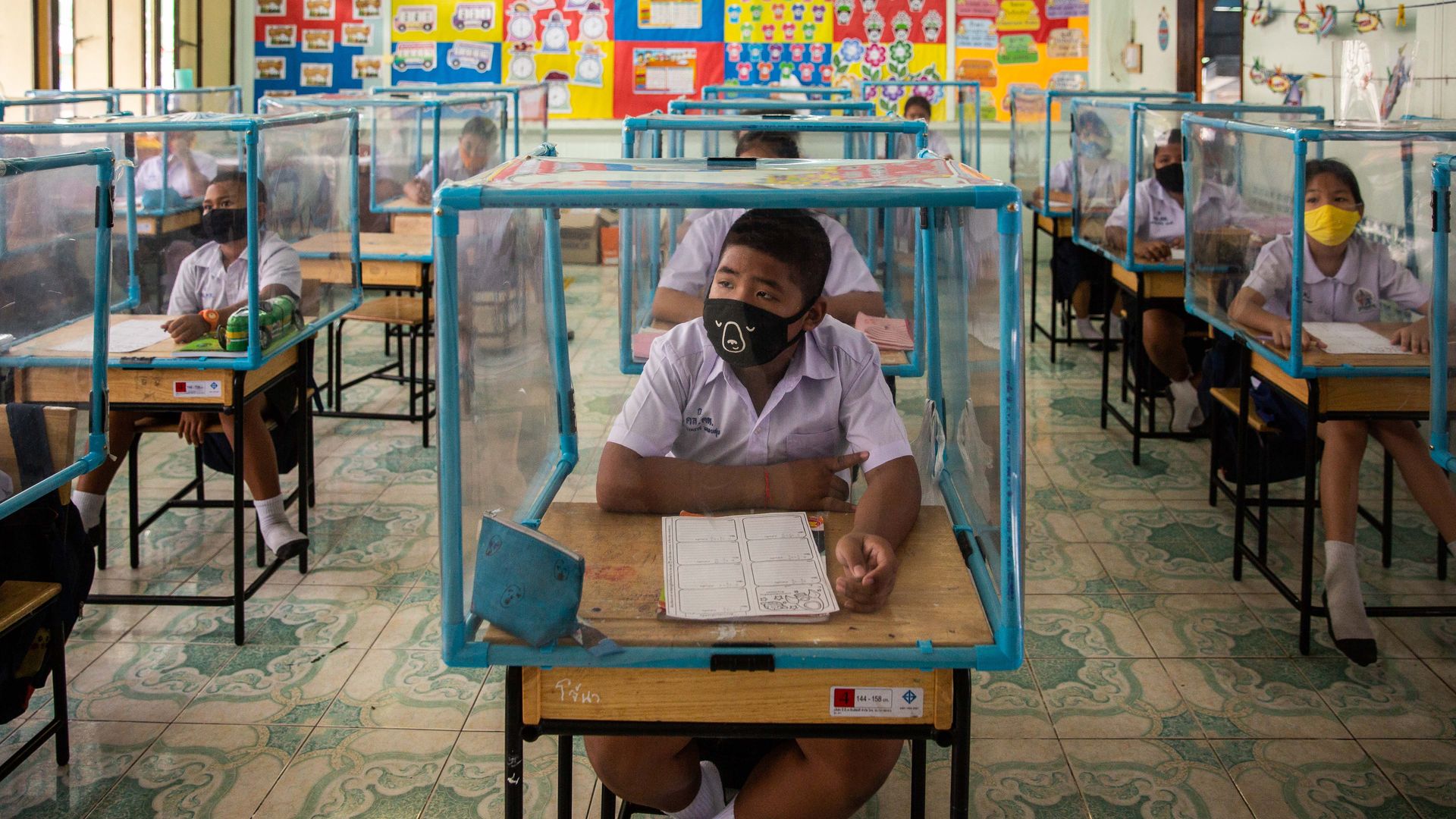Sep 2, 2020 - World
Thailand goes 100 days with no local coronavirus cases
Add Axios as your preferred source to
see more of our stories on Google.

Thai students wear face masks and sit at desks with plastic screens used for social distancing at the Wat Khlong Toey School in Bangkok, Thailand, in August after lockdown measures eased. Photo: Lauren DeCicca/Getty Images
